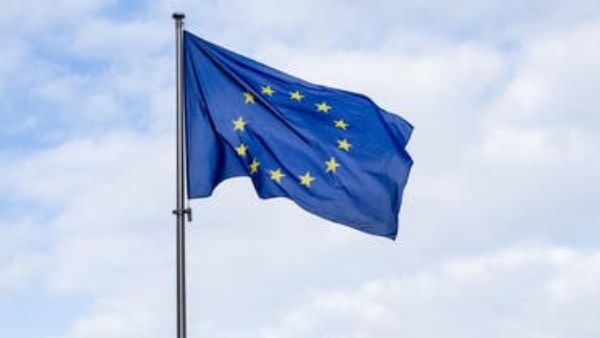
Ukraine’s allies broadly agree that Russia needs to pay for the damage
EU Moves Ahead on Plan to Tax Profits of Frozen Russian Assets

The European Union is progressing with plans to apply a windfall tax to the profits generated by frozen Russian central bank assets، while opting not to seize the immobilized money outright.
EU foreign ministers gave their political blessing to the windfall tax on Monday and it will be discussed by the bloc’s ambassadors later this week، according to people familiar with the matter.
Paying for the damage
Ukraine’s allies broadly agree that Russia needs to pay for the damage its war has caused. The EU، Group of Seven nations and Australia have frozen about €260 billion ($283 billion) in Russian Central Bank assets in the form of securities and cash، with more than two thirds of that immobilized in the EU. The majority of the EU-based assets are held by the clearing house Euroclear، where they earned about €3 billion last year.
The EU’s foreign policy chief، Josep Borrell، told reporters on Monday that progress was made on the windfall tax during a meeting of the bloc’s foreign ministers، and that discussions will continue.
”I am convinced that we can move forward with this file،” Belgian Finance Minister Vincent Van Peteghem، whose country currently holds the rotating presidency of the EU، told Bloomberg TV in an interview.
A global level playing field
A group of countries including Germany have made clear they are against seizing the Russian assets themselves over legal concerns، said the people، who spoke on condition of anonymity.
A spokesperson from the German Foreign Ministry didn’t immediately respond to a request for comment.
Belgium’s Van Peteghem sees this option in a critical light as well. “I am a little bit more reluctant، because I think we need a global level playing field and we also need to be sure that is legally sound and it cannot impact the financial stability of systemic institutions such as Euroclear،” he said.
The EU’s foreign affairs service proposed a multi-step process last year that would initially identify the relevant assets and set out actions that the central securities depositories holding those funds would need to take before next steps are put forward.
How a windfall tax is applied
Those steps would outline how a windfall tax is applied to the profits generated by the frozen assets and the proceeds transferred to the EU’s budget to use for Ukraine. Expenses and national taxes would be deducted before the proceeds are transferred، Bloomberg previously reported.
The US has recently signaled that it could be open to seizing the assets outright. But even the lesser step of taxing profits has progressed slowly in the EU as several member states and the European Central Bank are worried about the potential impact the move could have on the euro’s stability.
Separately، the debate over aid for Ukraine has hit a critical juncture، with questions arising over the war-torn country’s immediate needs. About $100 billion in aid remains stalled by political processes in Washington and Brussels.





-1120252475029447.jpg)













